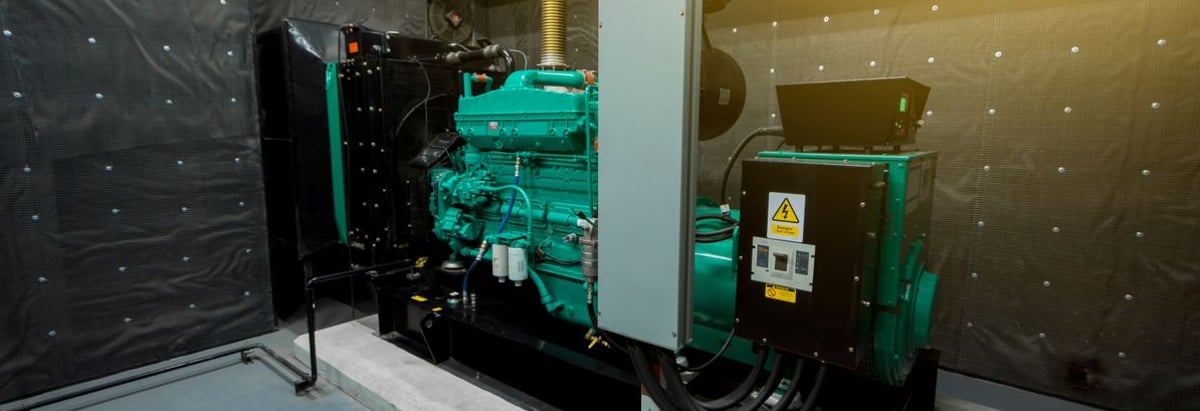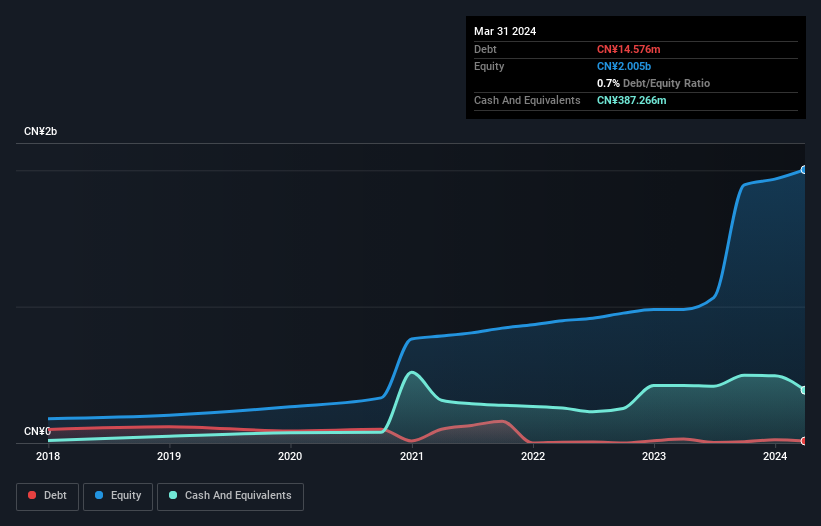
The external fund manager backed by Berkshire Hathaway's Charlie Munger, Li Lu, makes no bones about it when he says 'The biggest investment risk is not the volatility of prices, but whether you will suffer a permanent loss of capital.' It's only natural to consider a company's balance sheet when you examine how risky it is, since debt is often involved when a business collapses. We can see that Suzhou Veichi Electric Co., Ltd. (SHSE:688698) does use debt in its business. But should shareholders be worried about its use of debt?
What Risk Does Debt Bring?
Debt assists a business until the business has trouble paying it off, either with new capital or with free cash flow. Part and parcel of capitalism is the process of 'creative destruction' where failed businesses are mercilessly liquidated by their bankers. While that is not too common, we often do see indebted companies permanently diluting shareholders because lenders force them to raise capital at a distressed price. Of course, the upside of debt is that it often represents cheap capital, especially when it replaces dilution in a company with the ability to reinvest at high rates of return. When we think about a company's use of debt, we first look at cash and debt together.
View our latest analysis for Suzhou Veichi Electric
What Is Suzhou Veichi Electric's Net Debt?
As you can see below, Suzhou Veichi Electric had CN¥14.6m of debt at March 2024, down from CN¥28.8m a year prior. However, its balance sheet shows it holds CN¥387.3m in cash, so it actually has CN¥372.7m net cash.

A Look At Suzhou Veichi Electric's Liabilities
According to the last reported balance sheet, Suzhou Veichi Electric had liabilities of CN¥687.9m due within 12 months, and liabilities of CN¥30.5m due beyond 12 months. Offsetting these obligations, it had cash of CN¥387.3m as well as receivables valued at CN¥798.8m due within 12 months. So it actually has CN¥467.7m more liquid assets than total liabilities.
This short term liquidity is a sign that Suzhou Veichi Electric could probably pay off its debt with ease, as its balance sheet is far from stretched. Succinctly put, Suzhou Veichi Electric boasts net cash, so it's fair to say it does not have a heavy debt load!
On top of that, Suzhou Veichi Electric grew its EBIT by 39% over the last twelve months, and that growth will make it easier to handle its debt. There's no doubt that we learn most about debt from the balance sheet. But ultimately the future profitability of the business will decide if Suzhou Veichi Electric can strengthen its balance sheet over time. So if you're focused on the future you can check out this free report showing analyst profit forecasts.
Finally, while the tax-man may adore accounting profits, lenders only accept cold hard cash. While Suzhou Veichi Electric has net cash on its balance sheet, it's still worth taking a look at its ability to convert earnings before interest and tax (EBIT) to free cash flow, to help us understand how quickly it is building (or eroding) that cash balance. Over the last three years, Suzhou Veichi Electric saw substantial negative free cash flow, in total. While that may be a result of expenditure for growth, it does make the debt far more risky.
Summing Up
While it is always sensible to investigate a company's debt, in this case Suzhou Veichi Electric has CN¥372.7m in net cash and a decent-looking balance sheet. And we liked the look of last year's 39% year-on-year EBIT growth. So we don't have any problem with Suzhou Veichi Electric's use of debt. There's no doubt that we learn most about debt from the balance sheet. However, not all investment risk resides within the balance sheet - far from it. To that end, you should learn about the 3 warning signs we've spotted with Suzhou Veichi Electric (including 1 which is potentially serious) .
At the end of the day, it's often better to focus on companies that are free from net debt. You can access our special list of such companies (all with a track record of profit growth). It's free.
New: Manage All Your Stock Portfolios in One Place
We've created the ultimate portfolio companion for stock investors, and it's free.
• Connect an unlimited number of Portfolios and see your total in one currency
• Be alerted to new Warning Signs or Risks via email or mobile
• Track the Fair Value of your stocks
Have feedback on this article? Concerned about the content? Get in touch with us directly. Alternatively, email editorial-team (at) simplywallst.com.
This article by Simply Wall St is general in nature. We provide commentary based on historical data and analyst forecasts only using an unbiased methodology and our articles are not intended to be financial advice. It does not constitute a recommendation to buy or sell any stock, and does not take account of your objectives, or your financial situation. We aim to bring you long-term focused analysis driven by fundamental data. Note that our analysis may not factor in the latest price-sensitive company announcements or qualitative material. Simply Wall St has no position in any stocks mentioned.
Have feedback on this article? Concerned about the content? Get in touch with us directly. Alternatively, email editorial-team@simplywallst.com
About SHSE:688698
Suzhou Veichi Electric
Engages in the development, manufacture, and marketing of industrial automation control products and system solutions in China and internationally.
Flawless balance sheet with high growth potential.
Market Insights
Community Narratives




